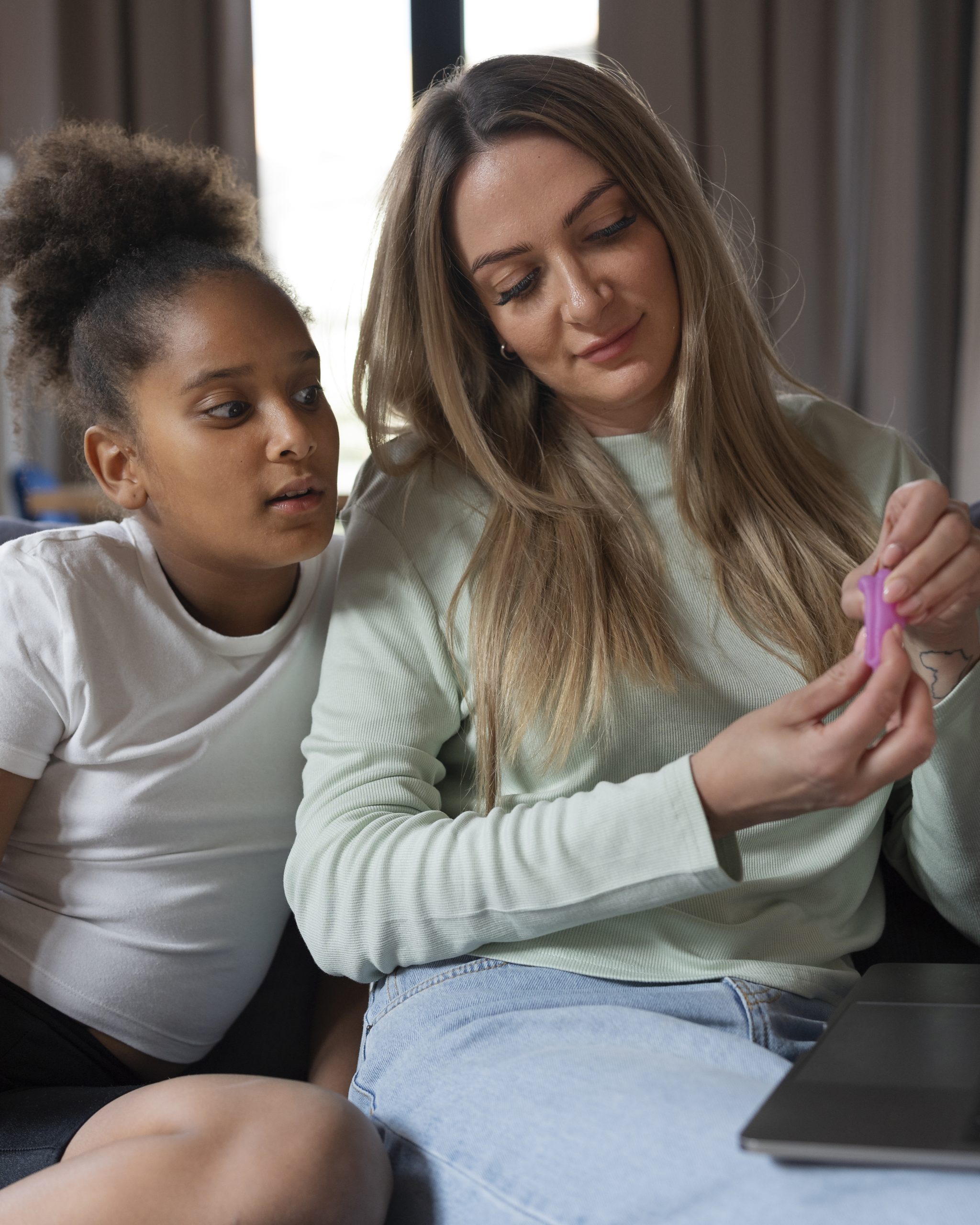As girls transition into puberty, it’s essential for parents and educators to provide support and guidance to help them manage menstruation with confidence and ease. Open communication, accurate information, and access to resources are key in ensuring that girls feel empowered and supported during this significant life stage. In this article, we provide practical tips for parents and educators to support girls in managing menstruation effectively.
1. Start the Conversation Early:
Begin discussing menstruation with girls before they reach puberty. Use age-appropriate language and resources to introduce the concept of menstruation, including books, videos, or discussions during family time. Normalizing menstruation early on helps girls feel prepared and comfortable when they experience their first period.
2. Provide Accurate Information:
Ensure that girls have accurate information about menstruation, including the menstrual cycle, anatomy, hygiene practices, and emotional well-being. Address common myths and misconceptions to dispel any fears or anxieties they may have. Encourage open dialogue and reassure girls that menstruation is a natural and normal part of growing up.
3. Teach Menstrual Hygiene Practices:
Educate girls about proper menstrual hygiene practices, including how to use and change menstrual products, wash hands before and after handling products, and maintain genital hygiene. Emphasize the importance of using clean and hygienic products to prevent infections and promote overall health.
4. Offer Choices in Menstrual Products:
Introduce girls to different types of menstrual products, such as pads, tampons, menstrual cups, and period underwear. Discuss the pros and cons of each option and let girls choose the products that suit their preferences and lifestyle. Providing choices empowers girls to take control of their menstrual health and find what works best for them.
5. Foster Open Communication:
Create a supportive environment where girls feel comfortable discussing menstruation and asking questions. Encourage open communication at home and in the classroom, and be prepared to address any concerns or uncertainties girls may have. Listen actively, validate their experiences, and provide reassurance and support as needed.
6. Prepare for Menstrual Emergencies:
Equip girls with the necessary supplies and knowledge to handle menstrual emergencies, such as unexpected periods or leaks. Encourage girls to keep a menstrual hygiene kit with spare pads or tampons, wet wipes, and a change of underwear in their backpack or locker. Teach them how to discreetly manage leaks and accidents to minimize embarrassment.
7. Address Menstrual Pain and Discomfort:
Acknowledge that menstruation can be accompanied by physical discomfort, such as cramps, bloating, and mood changes. Teach girls coping strategies for managing menstrual pain, such as taking over-the-counter pain relievers, applying heat packs, practicing relaxation techniques, and maintaining a healthy lifestyle.
8. Support Emotional Well-being:
Recognize that menstruation can impact girls’ emotional well-being and self-esteem. Offer emotional support and encouragement during menstruation, and remind girls that it’s normal to experience a range of emotions. Validate their feelings, and encourage self-care activities such as rest, relaxation, and engaging in hobbies they enjoy.
9. Advocate for Menstrual Equity:
Advocate for menstrual equity in schools and communities by supporting initiatives that provide free or affordable menstrual products, improve access to hygiene facilities, and promote menstrual health education. Work with school administrators and policymakers to implement inclusive policies and practices that address the needs of all menstruators.
Supporting girls in managing menstruation requires a collaborative effort between parents, educators, and communities. By starting the conversation early, providing accurate information, teaching menstrual hygiene practices, fostering open communication, preparing for emergencies, addressing menstrual pain and discomfort, supporting emotional well-being, and advocating for menstrual equity, we can empower girls to navigate menstruation with confidence, dignity, and resilience. It is essential to prioritize girls’ menstrual health and well-being and provide the support and resources they need to thrive during this important life stage.
- Trapped in Fear: Child Marriage and the Shadow of Domestic Violence in Northern Nigeria - August 6, 2024
- The Power of Media Representation - May 23, 2024
- Game On: Unleashing the Power of Sports for Girls’ Empowerment - May 23, 2024





